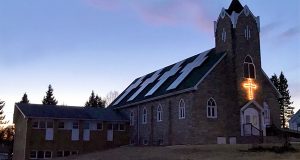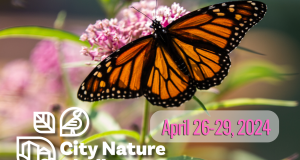Saint Paul-based National Parks of Lake Superior Foundation (the Foundation) has released a new documentary film, “Return of the Wolves: Lessons from the Wilderness,” and corresponding educational lesson plans for classrooms, distance learners, and homeschooled students. The film shows dramatic footage of wolf captures and wolves teaming up to form new packs, following researchers as they develop the science to expand our understanding of the predator/prey relationship between wolves and moose on Isle Royale National Park (the Park) and how it alters the ecosystem. The Park is an island located in the far northwest remote corner of Michigan, surrounded by Lake Superior.
Isle Royale National Park has been home to the longest running predator/prey study in the world, with more than 60 years of data collected, but there are still many unanswered questions. The curriculum will help students explore some of these questions as they virtually join the park personnel and researchers in the field. “Knowing how wolves fascinate people, and that teachers are dealing with constantly changing demands, we developed lesson plans for all student age groups,” said Tom Irvine, executive director of the Foundation. “The lesson plans and film are available for free at https://www.nplsf.org/lessons-from-the-wilderness.”
This restoration effort involved two countries, two states, two indigenous tribes, and a province, all working together to capture wolves for the new population. The documentary is the culmination of filming and chronicling the first four years of the restoration of the predator/prey relationship at the Park. It is an expansion of Curiosity Stream’s original short documentary, “Breakthrough: Return of the Wolves” that released in 2020. Curiosity Stream also provided additional production support to the making of “Return of the wolves: Lesson from the Wilderness”.
The film was a collaboration between Park personnel at Isle Royale National Park, the International Wolf Center (IWC) in Ely, Michigan Technological University (MTU), State University of New York (SUNY) College of Environmental Science and Forestry, and the Cane-Bridge Foundation of Bogota, Columbia. The following state, provincial, federal, and tribal collaborators also supported the capture and transport of the wolves to begin the new island population: the Grand Portage Band of Lake Superior Chippewa, the states of Michigan and Minnesota, and the province of Ontario and Michipicoten First Nation.
In the film, the Park personnel explained the complexities of the decision to restore wolves and logistical support for the restoration, while the IWC helped fund the transfer of wolves and distribution of the film. Researchers from MTU and SUNY described past and future studies of the predator/prey relationship. Funding for the Spanish translation of the film and lesson plans was provided by the Cane-Bridge Foundation of Bogota, Colombia. The Spanish version will be released via the Foundation’s website with accompanying Spanish lesson plans on February 14.
Students participating in the educational lessons will have a chance to tap into the biology and population dynamics of the moose and wolves on Isle Royale National Park. At the time of translocation, the wolf population had dwindled down to two inbred animals, and the moose population was expanding rapidly with no significant check from a predator. After the Park decided to restore the wolves to function as the top predator on an island populated with a large prey base of more than 1,800 moose, the Foundation started to document the difficulties in restoring the population, and the science and activities related to how ecosystems function and the role of a dynamic predator in impacting a large prey, and its impacts on the ecosystem.
To learn more about the documentary and educational lesson plans, visit the Foundation website at https://www.nplsf.org/lessons-from-the-wilderness. The Foundation also presents the Lake Superior Podcast, a show that highlights the five National Parks that surround Lake Superior. Hosts, Walt Lindala and Frida Waara, introduce listeners to the people, places, and projects that make this Great Lake so remarkable. To listen to the podcast, visit https://nplsf.org/lake-superior-podcast. For information about the Foundation, visit https://nplsf.org.
- Get Ready for the 2024 City Nature Challenge! - April 18, 2024
- Tickets On Sale for Thunder Bay LitFest 2024 – Featuring Guy Gavriel Kay! - April 16, 2024
- Embark on an Adventure: Win a Fly-In Fishing Trip for Two - April 16, 2024
 Wawa-news.com You can't hear the 'big picture'!
Wawa-news.com You can't hear the 'big picture'!


